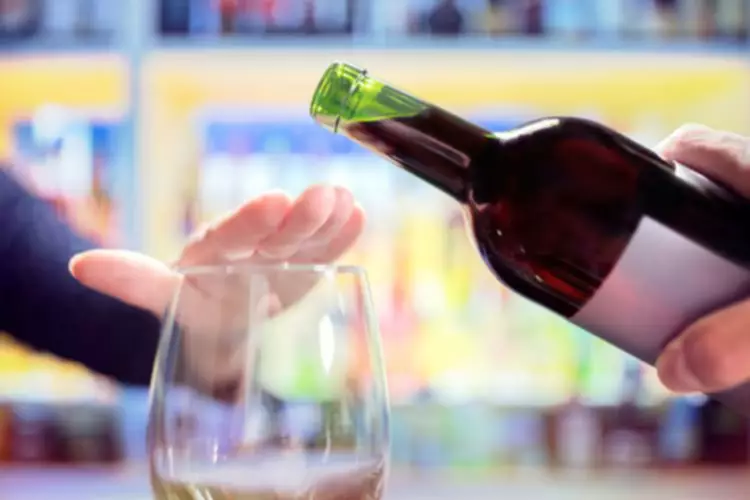Role of Cannabidiol in the Therapeutic Intervention for Substance Use Disorders PMC

CBD employed for its effects on opioid craving has also been tested in human translational studies. In one study, three groups of patients received fentanyl (0.5 or 1 μg/kg) on two different occasions, with each group receiving either 400 or 800 mg of CBD or a placebo. CBD was well tolerated at all dosages, and co-administration with fentanyl did not induce respiratory depression symptoms or any cardiovascular complications (Manini et al., 2015) (Table 2).

Everything you need to know about CBD oil
People smoke marijuana in hand-rolled cigarettes (joints) or in pipes or water pipes (bongs). They also smoke it in blunts—emptied cigars that have been partly or completely refilled with marijuana. These devices pull the active ingredients (including THC) from the marijuana and collect their vapor in a storage unit.
CBD Does Not Have Psychoactive Effects

It can offset the effects of human experimental anxiety from caffeine, nicotine, and other legal substances. In CPP paradigm studies, repeated CBD injection (10 and 20 mg/kg) reduced cocaine (10 or 15 mg/kg)-induced CPP (Chesworth and Karl, 2020; Luján et al., 2018) without any effect on behavioral sensitization in mice (Luján et al., 2018). Moreover, the mice treated with CBD (10 mg/kg) exhibited decreased cocaine preference and consolidation of cocaine memory (Chesworth and Karl, 2020). In terms of AMPH, bilateral infusion of CBD (100 ng/0.5 μL) in the NAc shell reduced its sensitization, psychotomimetic behaviors (hyperlocomotion and sensorimotor gating deficits), and dopaminergic neuronal activity within the VTA of rats (Renard et al., 2016) (Table. 1).
What is CBD
Interestingly, we identified a therapeutic potential of psychedelics in schizophrenia adopting a critical point of view, particularly on negative symptoms and social cognition, and we summarized all the relevant findings. Drug addiction is a chronically relapsing disorder characterized by the compulsive desire to use drugs and a loss of control over consumption. Cannabidiol (CBD), the second most abundant component of cannabis, is thought to modulate various neuronal circuits involved in drug addiction. The goal of this systematic review is to summarize the available preclinical and clinical data on the impact of CBD on addictive behaviors. MEDLINE and PubMed were searched for English and French language articles published before 2015. In all, 14 studies were found, 9 of which were conducted on animals and the remaining 5 on humans.
- No cognitive defects nor detrimental effects on the psychological condition were observed.
- Thus, additional studies are warranted to further explore the therapeutic potential of CBD in addictive disorders regarding its pro-neurogenic as well as neuroprotective properties.
- It’s also important to choose high-quality CBD products from reputable sources and follow their recommended dosing guidelines.
- Also, CBD (10 mg/kg, i.p.) disrupted the reconsolidation of place preference in rats and this effect was present for 2 weeks (de Carvalho and Takahashi, 2017).
- CBD pretreatment attenuated the AMPH-disruptive effects on PPI test after systemic (30 and 60 mg/kg) or intra-NAc (60 nmol; 0.2 μL) administration in mice (Pedrazzi et al., 2015) (Table 1).
- The present systematic review has its own limitations, including the lack of a mechanism to exclude publication bias and the fact that no search for unpublished studies was achieved.
- CBD is one of the many chemical compounds that is found in the cannabis plant—referred to as cannabis sativa.
- During SH-SY5Y cell differentiation, CBD did not induce changes in antioxidant potential, nor neurite density.
- Thus, this review summarizes preclinical and clinical studies that have examined CBD as a novel pharmacological therapy in treating substance abuse disorders.
The multimodal pharmacological profile described for CBD and the specific regulation of addictive behavior-related targets explains, at least in part, its therapeutic effects on the regulation of the reinforcing and motivational properties of different drugs of abuse. Moreover, the remarkable safety profile of CBD, its lack of reinforcing properties and the existence of approved medications containing this compound (Sativex®, Epidiolex®) increased the number of studies suggesting the potential of CBD as a therapeutic intervention for SUD. That lacks psychotomimetic and rewarding properties and inhibits the rewarding and reinforcing effects of addictive drugs such as cocaine, methamphetamine (METH), and morphine. Additionally, CBD’s safety profile and therapeutic potential are currently evaluated in several medical conditions, including pain, depression, movement disorders, epilepsy, multiple sclerosis, Alzheimer’s disease, ischemia, and substance use disorder. There is no effective treatment for substance use disorders such as addiction, and this review aims to describe preclinical and clinical investigations into the effects of CBD in various models of opioid, psychostimulant, cannabis, alcohol, and nicotine abuse. Furthermore, the possible mechanisms underlying the therapeutic potential of CBD on drug abuse disorders are reviewed.
Furthermore, in its pure form, CBD has no known psychoactive effects and does not cause euphoria or intoxication. This makes it a favorable choice for individuals seeking relief without experiencing mind-altering effects. Preliminary evidence suggests that CBD may help treat substance use disorder. However, the authors draw attention to the fact that most studies use a combination of THC and CBD. As a result, assessing the pain management benefits of CBD alone can be challenging. However, current research shows conflicting evidence, and researchers need to conduct additional high-quality controlled trials to verify these findings.
5. Antipsychotic Properties
In conjunction with other antiepileptic drugs, seizure frequency was reduced compared to placebo. Somnolence occurred more frequently in those receiving 20 mg/kg/day CBD than 10 mg/kg/day. AEs were reported in 6 patients following 20 mg/kg/day CBD, one following the lower dose, and one receiving a placebo.

Products and Services
If one of our articles is marked with a ‘reviewed for accuracy and expertise’ badge, it indicates that one or more members of our team of doctors and clinicians have reviewed the article further to ensure accuracy. This is part https://ecosoberhouse.com/ of our ongoing commitment to ensure FHE Health is trusted as a leader in mental health and addiction care. A study published in Addictive Behaviors showed that it could be a potent treatment option for nicotine addiction.
It can help alleviate discomfort without the risk of addiction or harmful side effects. CBD does not interact with the CB1 and CB2 cannabinoid receptors in the brain that THC and other cannabinoids do. Instead, CBD induces the brain’s endocannabinoid system to create more natural is cannabidiol addictive cannabinoids and then slows down the chemical breakdown in the brain. CBD can come from hemp and marijuana plants; however, hemp-derived CBD products do not contain tetrahydrocannabinol, the chemical in marijuana that causes psychoactive effects referred to as a high.

